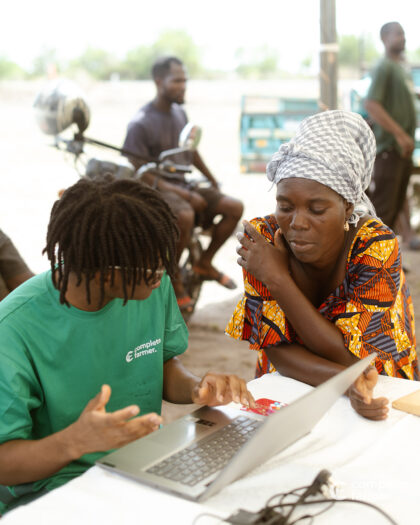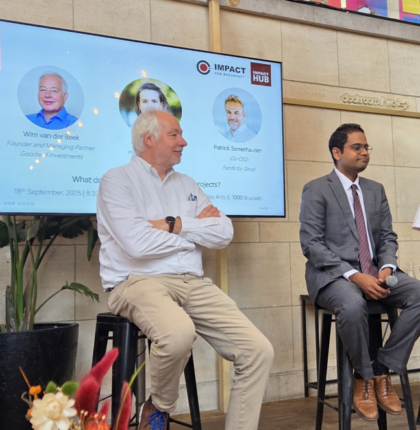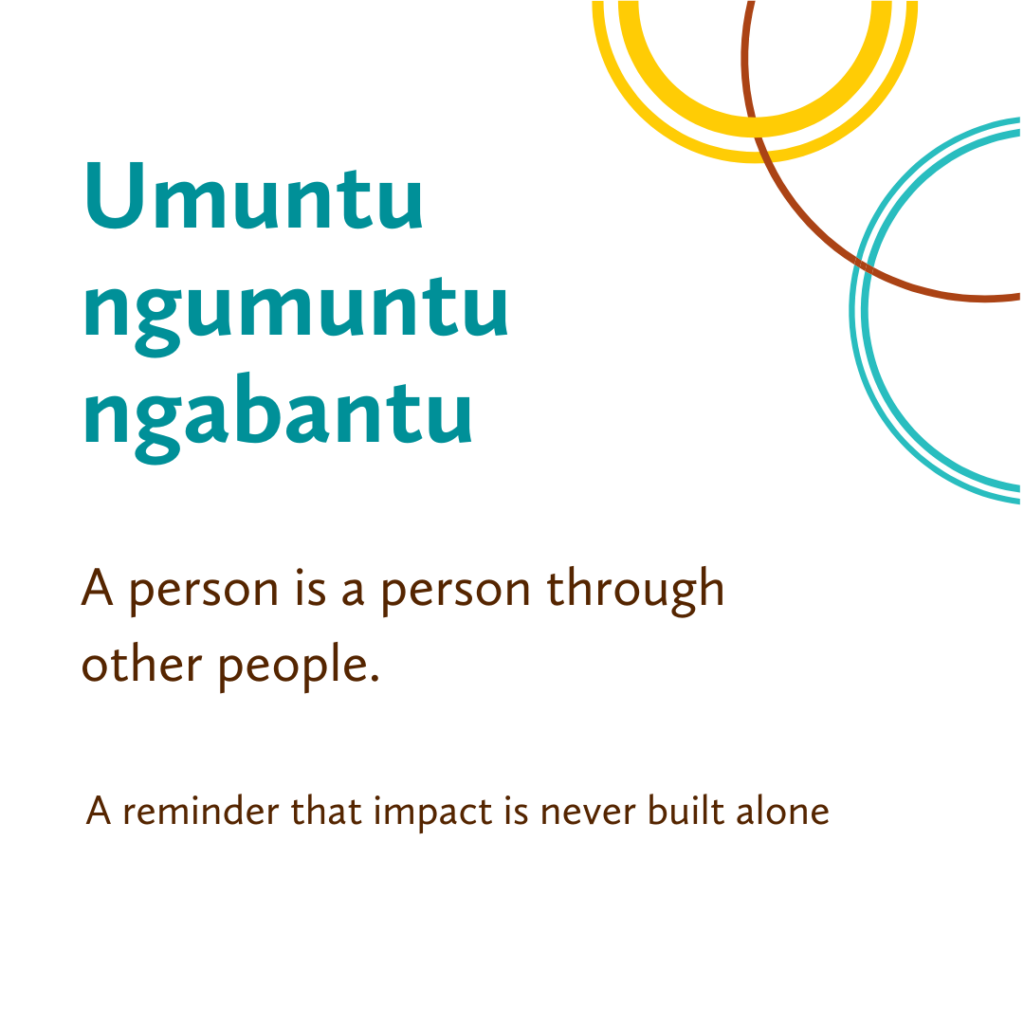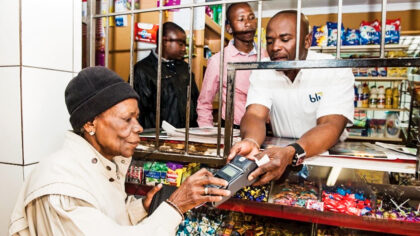

Impact is never built alone: Reflections from Impact for Breakfast in Brussels
With local chapters spanning the globe, Impact for Breakfast (IFB) brings together investors, entrepreneurs and visionaries to share ideas and work collaboratively to create positive change. Wim van der Beek, Goodwell’s founder and CEO, spoke at a recent IFB event in Brussels. He shares his thoughts on the event and Goodwell’s approach to impact below.
At the end of September, I had the pleasure of joining the Impact for Breakfast (IFB) gathering in Brussels. Many thanks to Kapil Kanungo and the IFB Brussels team for putting together such a thoughtful event and for inviting me to share a few words! Events like these remind me how valuable it is to step away from my day-to-day routine and connect with others who share the same drive for impact
Impact as our founding principle
During the event, I was asked to talk about the kind of impact we look for at Goodwell. It made me reflect on why I started this journey in the first place. To me, impact isn’t just about numbers on a dashboard – it’s about changing lives in a lasting, meaningful way
As investors in inclusive growth, at the most basic level, Goodwell wants our portfolio companies to create access: access to products and services that are affordable, relevant, and life-enhancing. But access alone won’t enable transformative change. Real impact only happens when people can use these products and services as a means to build better futures
Taking a systemic approach for social and financial returns
Take microcredit, for example, which was the focus of our first fund. A small loan by itself won’t completely transform someone’s life. It’s only when the lender uses it to generate additional income – enough to repay the loan with interest as well as improve his or her livelihood – that the loan becomes a stepping stone rather than a burden. For that to happen consistently, the lending institution has to provide more than money. It needs to offer holistic support, which depending on the person and their line of business, could mean financial literacy, skills training or even access to relevant inputs and markets
This is exactly what we mean when we say that Goodwell takes a systemic approach to impact. It’s about creating the conditions for change to stick. And it’s about considering the desired impact on multiple levels: on clients and end-users, on the wider value chain in which a business operates, and on the broader financial ecosystem that we’re all a part of.
For the companies we invest in, this approach also makes good business sense: a company that supports its customers holistically and has a deep understanding of the wider ecosystem is far more likely to succeed itself. It ensures sustainable impact and sustainable financial returns go hand in hand.
Positive change requires collaboration
Of course, none of this can be done in isolation. A systemic approach requires collaboration. We can’t sit back and assume others will fill the gaps in the ecosystem. If we want it to work, we have to build it together. Inspiringly, this theme of collaboration was echoed by the other speakers on the panel – it’s clearly something we all recognise as essential in our work.
The emphasis on collaboration reminds me of a beautiful Nguni (Southern African) proverb: “umuntu ngumuntu ngabantu” (a person is a person through other people), which inspired our Africa-focused uMunthu investment funds. Many years ago, I heard philosophy professor Herman de Dijn in Leuven explain this proverb and connect it to Emmanuel Levinas’ philosophy and to Muhammad Yunus’ autobiography Banker to the Poor, where Yunus describes the inspiration behind Grameen Bank. Coming full circle, that conversation was one of the sparks that inspired me to start Goodwell.

But to return to today, what I took away from the event in Brussels is this: whether we’re building companies, ecosystems, or whole new ways of thinking about finance, impact cannot be created alone. It’s always created together. And working towards that goal, collaboratively, can start with a conversation over breakfast.
I’d love to keep exploring this topic with our wider community! What does systemic impact mean in your world, and how do you see collaboration shaping it? Feel free to get in touch (contact@goodwell.nl), share your perspective, or join us at a future event.

